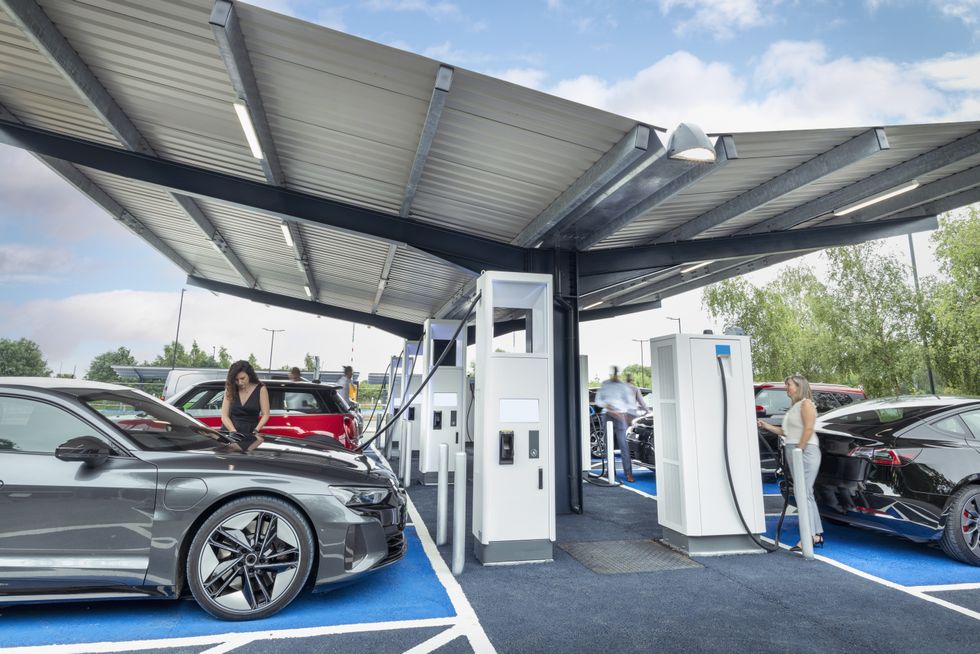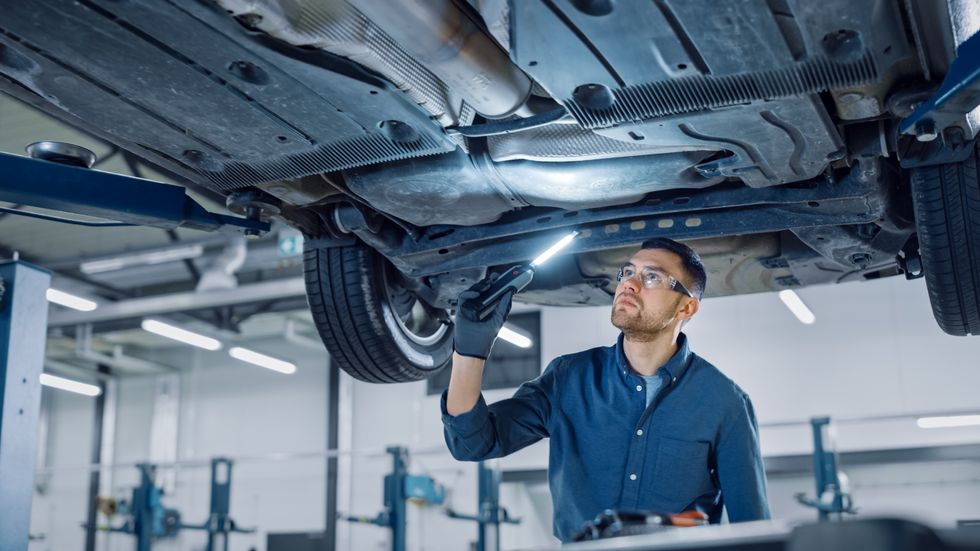Electric cars less likely to have an insurance claim go through than petrol and diesel models
GETTY
On average, batteries are the most expensive part of an electric vehicle to replace
Don't Miss
Most Read
Trending on GB News
According to new research, electric vehicles are almost 50 per cent more expensive compared to petrol and diesel cars when it comes to insurance and claims.
Warranty claims for EVs were found to be between 30 and 50 per cent more expensive to insure than internal combustion engine vehicles.
The higher price point comes as new data found that only 800 electric car warranty claims were paid between August 2023 and August 2024.
It reported that the most common issue was with the battery charge control modules, which cost an average of £1,311 to repair. They are also less likely to be approved by insurers.
Do you have a story you'd like to share? Get in touch by emailingmotoring@gbnews.uk

Batteries are the most expensive part of an electric vehicle to replace
GETTYOther expensive claims for EVs include warning lights (£875), power distribution boxes (£747) and shock absorbers (£588).
The costliest replacement component for electric cars is the battery, which typically costs between £8,000 and £12,000 for a standard EV.
Steph Newbery, Group Director of Warranty Solutions Group, said: “There is much industry discussion about the cost of EV repairs compared to internal combustion engine vehicles. Many studies show that electric vehicles have lower servicing and maintenance costs than petrol and diesel cars because they have fewer moving parts that can fail.
"However, not all repair shops are equipped to handle EVs, and specialised knowledge is needed to safely work on high-voltage electrical systems."
She explained that this drives up labour costs, as repairs often require trained professionals, sometimes through the manufacturer or specialised dealers.
One of the biggest problems with EVs is battery degradation, which is often accelerated by frequent rapid charging, she warned.
Some drivers have reported a faster-than-expected decline in batteries raising concerns about costly replacements with insurers having to foot the bill.
Researchers have suggested that battery capacity declines by approximately 2.3 per cent each year, compared with petrol and diesel cars, which have a much higher shelf life.
One study found that batteries in the warmer climate of Florida last for 5.2 years on average, while in Alaska's colder climate, they could last up to 13.3 years.
However, while batteries can be an issue with EVs, drivers face other expensive faults such as a £5,000 bill for a transfer box and electric drive motor.
Newbery added: “Unlike ICE vehicles, which can be serviced by a wide range of independent mechanics, EVs rely more on manufacturer-certified technicians and parts, limiting competition in repair services and keeping prices high.
“EVs also depend heavily on sophisticated electronics and software, making diagnostics and repairs more complex and expensive than with ICE vehicles. Insurers and brokers need to understand the risks associated with alternative fuel vehicles and develop appropriate premiums for this emerging market.”
LATEST DEVELOPMENTS:

Only 800 EV claims were paid last year
THE MOTOR OMBUDSMANData from the group also flagged how there are longer repair times for EVs due to safety requirements and “higher parts-to-labour ratios” because manufacturers often mandate part replacements, especially in comparison to ICE vehicles.
The report noted: “Many of these issues are tied to specific brands or models that happen to be electric. They are not necessarily EV-specific problems.”








